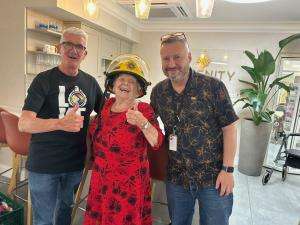The third way in adult social care provision

Social workers know the pressures on adult social care all too well. Services are overstretched, the market is fragile, and families are often left with little choice. For practitioners, that creates a daily frustration: you want to secure care that reflects dignity, independence and person-centred values, but the options in front of you don’t allow it.
For years, adult social care in England has been dominated by two approaches: shrinking local authority in-house services on the one hand, and private providers on the other. Both can deliver excellent care, but both have limits. In-house provision can lack flexibility, while profit-driven markets or even charitable providers bring the risk of sudden collapse or withdrawal, as many social workers have seen first-hand.
There is, however, perhaps a ‘third way’. Across England a quiet shift is taking place in how adult social care is delivered with the rise of the Local Authority Trading Company (LATCo) model. A LATCo is a company wholly owned by a council but operating at arm’s length, reinvesting any surplus back into services rather than shareholders. Organisations such as Southend Care, Your Choice Barnet, Bolton Cares and Herts at Home show how this approach can combine accountability with the creativity and independence of a social business.
Care is Central, the LATCo created by Central Bedfordshire Council, is part of this movement. What makes the model relevant to social workers is not its corporate structure but its focus on social work values. For example, CiC’s newest homes, Marigold House and Red Kite Meadows, are not just buildings but communities shaped by the people who use them. The names, layouts and communal spaces were chosen with residents, families and staff. Instead of fitting people into a pre-designed service, the services themselves carry the imprint of their identity and aspirations.
Marigold House opened in February 2025 and shows what this means in practice. Built to Passive House standards, with circadian lighting and sustainable energy systems, it was shaped around what people said would make it feel like home. CiC’s first resident, Ivy, described her move as “like going from the pits to the Ritz”.
Early next year CiC will open Red Kite Meadows, which takes the model further. It is a care village rather than a single home, with a residential service, a specialist dementia household, 80 self-contained independent living flats and a short break service for younger adults designed in response to social worker feedback about gaps in provision. There is a café and community spaces open to the wider public, so the service is part of local life.
It is essential to acknowledge that social work extends beyond statutory teams, council offices, or virtual meetings. The profession flourishes in the everyday environments where individuals live, in supported living schemes, residential homes, day services, and during pivotal conversations with families. Core values such as rights, dignity, independence, and relationship-centered practice are intrinsic to social work and not exclusive to any single organisation. These principles are demonstrated consistently throughout the care sector, including within organisations such as Care is Central.
Social work values are not measured in strategies or mission statements. They are tested in the small places of everyday life, in how someone is listened to, in the choices they are offered, and, in the respect, they feel in their own home. The LATCo model presents an opportunity to build genuine partnerships with residents, families and practitioners so that services are co-produced and shaped around what people say matters most. In this way those values are not an aspiration but a lived reality.
The LATCo approach does present challenges. Care is Central needs to operate at higher occupancy than the industry average, balance publicly and privately funded residents to remain viable, and tightly control the costs of operating modern, sustainable buildings. Financial discipline makes the model stable and unlike private providers that sometimes collapse without warning, a LATCo is accountable, rooted in partnership with its council and built to endure.
It would be wrong not to recognise the wider context. After years of austerity and political indifference towards adult social care, it can sometimes feel difficult to look for hope. Funding is tight, demand is rising, and the sector is spoken about only in terms of crisis. Yet it is precisely in this environment that alternative models matter most.
Care is Central is not the panacea to solve all social care woes. However, by working in partnership with the local authority, co-designing services with people, families and practitioners, we can show that a third way in adult social care provision is possible. One that is practical, person-centred and rooted in the communities it serves.
Rob Templeton is a social worker and managing director of Care is Central

